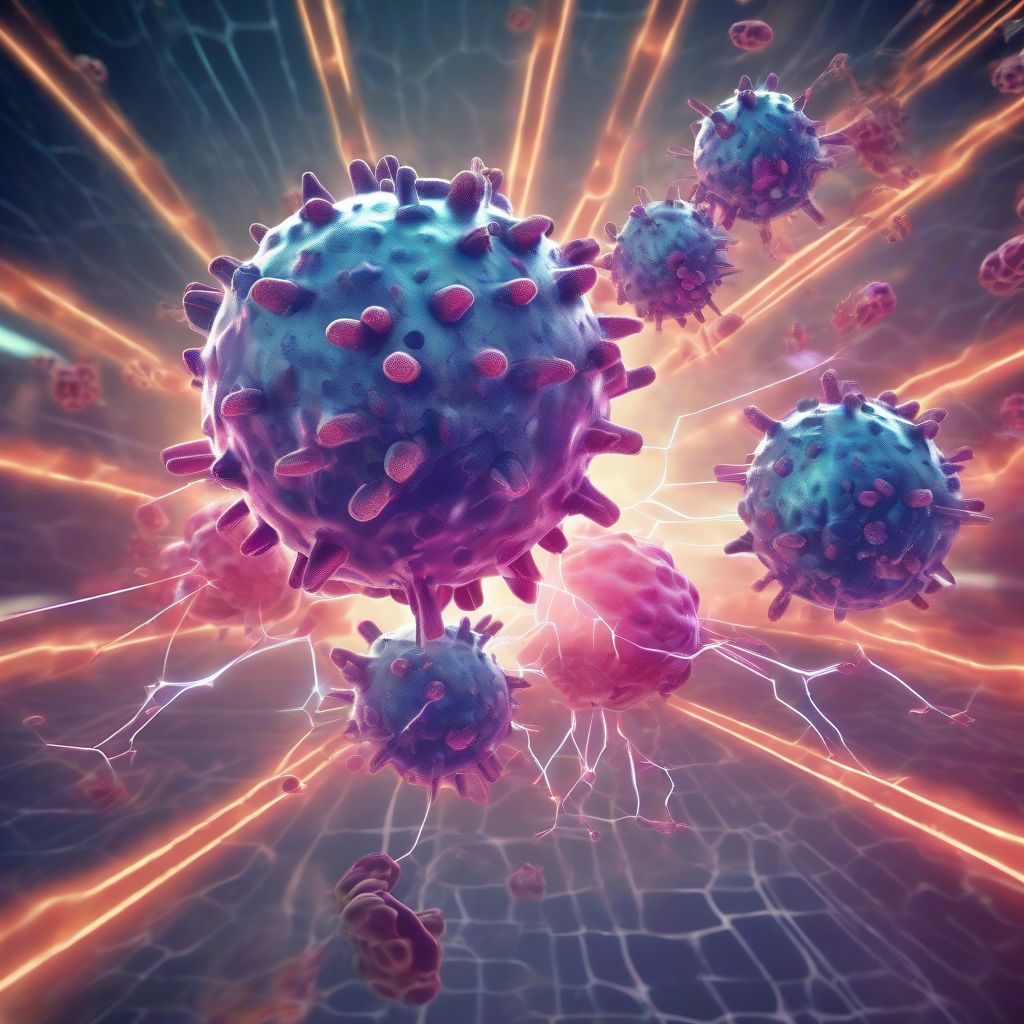Imagine a world without cancer. A world where the diagnosis isn’t a death sentence, but a challenge met with innovative treatments and ultimately, victory. While we aren’t there yet, the latest breakthroughs in cancer treatment and research are bringing us closer to that reality every day. From immunotherapy revolutionizing how we fight cancer to personalized medicine tailoring treatments to individual genetic profiles, the landscape of cancer care is transforming at a breathtaking pace. Let’s delve into these exciting advancements and explore the hope they offer.
Immunotherapy: Unleashing the Body’s Own Defenses
Immunotherapy has emerged as a game-changer in cancer treatment. Instead of directly attacking cancer cells, immunotherapy harnesses the power of the patient’s own immune system to recognize and destroy cancer. This approach has shown remarkable success in treating various cancers, including melanoma, lung cancer, and lymphoma.
Checkpoint Inhibitors: Releasing the Brakes on the Immune System
One of the most promising forms of immunotherapy is checkpoint inhibitors. These drugs block proteins that normally keep the immune system in check, preventing it from attacking healthy cells. By releasing these “brakes,” checkpoint inhibitors allow the immune system to mount a powerful attack against cancer cells.
CAR T-Cell Therapy: Engineering a Personalized Army
CAR T-cell therapy is a revolutionary form of immunotherapy that involves genetically modifying a patient’s own T-cells (a type of immune cell) to recognize and destroy cancer cells. This personalized approach has shown incredible promise in treating certain blood cancers, offering hope for patients who have exhausted other treatment options.
 Immunotherapy Cancer Treatment
Immunotherapy Cancer Treatment
Targeted Therapy: Precision Medicine for Cancer
Targeted therapy focuses on identifying and attacking specific vulnerabilities within cancer cells. This approach offers a more precise way to treat cancer, minimizing damage to healthy tissues.
Genetic Profiling: Understanding the Enemy
Advances in genetic sequencing have enabled scientists to identify specific genetic mutations that drive cancer growth. This information can be used to develop targeted therapies that specifically target these mutations, offering a personalized approach to cancer treatment.
Small Molecule Inhibitors: Disrupting Cancer Signaling
Small molecule inhibitors are drugs that block specific signaling pathways within cancer cells, disrupting their growth and survival. These targeted therapies have shown remarkable efficacy in treating certain types of cancer, including leukemia and breast cancer.
Advances in Radiation Therapy: More Precise, Less Invasive
Radiation therapy has long been a cornerstone of cancer treatment. Recent advancements have made it even more precise and less invasive, minimizing side effects and maximizing efficacy.
Proton Therapy: Targeting Tumors with Pinpoint Accuracy
Proton therapy is a form of radiation therapy that uses protons instead of X-rays to deliver radiation to tumors. This allows for more precise targeting, sparing surrounding healthy tissues and reducing side effects.
Stereotactic Radiosurgery: Delivering High Doses with Precision
Stereotactic radiosurgery delivers high doses of radiation to tumors with extreme precision, often in a single session. This minimally invasive approach can be effective in treating small, well-defined tumors.
Early Detection and Prevention: The First Line of Defense
While treatment advancements are crucial, early detection and prevention remain the most effective weapons against cancer.
Liquid Biopsies: Detecting Cancer Early with a Simple Blood Test
Liquid biopsies offer a non-invasive way to detect cancer early by analyzing blood samples for circulating tumor DNA (ctDNA) and other cancer biomarkers. This promising technology could revolutionize cancer screening and diagnosis.
Lifestyle Changes: Reducing Your Cancer Risk
While some cancer risks are unavoidable, lifestyle factors play a significant role. Maintaining a healthy weight, following a balanced diet rich in fruits and vegetables, exercising regularly, and avoiding tobacco products can significantly reduce your cancer risk.
The Future of Cancer Treatment: Personalized and Integrative
The future of cancer treatment is bright, with ongoing research paving the way for even more effective and personalized therapies.
Combining Therapies for Maximum Impact
Researchers are exploring the potential of combining different treatment modalities, such as immunotherapy and targeted therapy, to achieve synergistic effects and improve patient outcomes.
Integrative Oncology: Addressing the Whole Person
Integrative oncology takes a holistic approach to cancer care, combining conventional treatments with complementary therapies like acupuncture, meditation, and nutritional counseling to support patients’ physical, emotional, and spiritual well-being. As a nutritionist and meal prep coach, I strongly believe in the power of nutrition to support the body during cancer treatment and recovery.
 Cancer Research Scientist
Cancer Research Scientist
Conclusion
The latest breakthroughs in cancer treatment and research offer unprecedented hope for patients. From immunotherapy revolutionizing how we harness the body’s defenses to targeted therapies offering personalized precision, we are witnessing a paradigm shift in cancer care. Early detection and prevention remain crucial, and a healthy lifestyle can significantly reduce your risk. As research continues and new discoveries emerge, we can look forward to a future where cancer is no longer a feared diagnosis but a manageable disease. Remember, knowledge is power. Stay informed, talk to your doctor, and be proactive about your health. What are your thoughts on these exciting advancements? Share your comments below, and let’s continue the conversation about conquering cancer.



